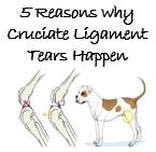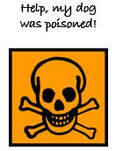|
Vet expenses can be very high, especially if any type of operation or specialist care is involved. Ensure that your pet is covered in the event of any unexpected, and unforeseen accidents, any operations, and to look after your Golden Oldie, when those days arrive. We have 5 simple plans for comprehensive pet insurance coverage. Visit our website at www.genericpet.co.za
|
Bloat – Gastric Dilation and Volvulus
An interesting case study on Bloat, aka, Gastric Dilation and Volvulus by Dr. Gerry Retief BVSc MRCVS. Dr. Retief also mentions the dangers of feeding large breed dogs a food with a high content of maize meal, and how important it is not to give a dog heavy exercise 2 hours before and after a meal.
Dr. Retief sends out an interesting newsletter on a regular basis – do have a look at his site for more information. http://www.vet2petnet.co.za/
Dr. Retief sends out an interesting newsletter on a regular basis – do have a look at his site for more information. http://www.vet2petnet.co.za/
The Case of the Boerboel who had a Belly Full
By Dr. Gerry Retief – Dr. Retief sends out an interesting newsletter on a regular basis – do have a look at his site for more information.
The frantic call came late on a Friday afternoon. I was just about to leave the hospital and was looking forward to a relaxing time at home after a busy week. The voice on the other end of the line was hysterical:
"Doc, please help! Butch is in great pain and it looks as though he's dying!"
I recognised Emily's voice. She was the owner of a very large and very active Boerboel named Butch. In a calm voice I asked her to explain exactly what had happened.
"I don't know Doc! He suddenly started panting heavily and his stomach seems to be swelling up and ...oh my God, he' s struggling to breathe now!"
I told her to bring Butch to the hospital immediately. The whole family was there within ten minutes. I took one look at Butch and quickly told my staff to bring our canvass stretcher and carry Butch into the prep area. His stomach was indeed getting bigger by the second and his gums were turning blue as he struggled to take each breath.
Without a moment's hesitation I plunged a large bore needle into his stomach through the skin of his belly. With a 'WOOSH' sound, air came out of the needle and after a fairly short time the stomach subsided and Butch began to breathe more easily.
While the gas was escaping from the needle, we set up a drip containing electrolytes and colloids to counteract the shock. Within ten minutes I administered a special type of intravenous cortisone, also for shock. His heartbeat settled down and the colour of his gums started to improve. I felt it was now safe to administer a sedative so that we could pass a thick stomach tube through Butch's oesophagus. Once the stomach tube was in place, Butch became much calmer and we could all breathe a little easier.
In the meantime Emily and her three daughters were clinging to each other in a corner of the consulting room. I explained that the worst was probably over but that Butch needed emergency surgery.
"But what's wrong with him Doc?" The family chorused.
I asked, "Did you give Butch a large meal consisting of maize meal porridge this afternoon?" (I knew they were in the habit of feeding him maize meal porridge).
"Yes, with some meat as well." Emily's youngest said.
"And then I suppose you guys started playing with him on the lawn?"
"Yes we did! With a ball and a Frisbee." the teenager confessed.
I explained, "This unfortunately caused Butch's stomach to twist around itself. In a big dog like Butch the full stomach is quite heavy. On top of that the spleen is attached to the one side acting as a sort of pendulum. When he jumped up to catch the ball or the Frisbee, the spleen swung the whole heavy stomach around blocking the inlet and the outlet of the stomach. When this happens, gas quickly forms and distends the belly to such an extent that he can't breathe properly. He cannot burp it out, nor can it pass into the intestines. If we don't operate now he could die!"
This caused the whole family to start wailing. I assured them that we had probably caught the problem in time, provided that we went ahead straight away.
I used a very safe anaesthetic and had monitors on his heart and lungs to make sure that he was breathing properly and that his heart was pumping more regularly.
When I opened him up, I looked all over his stomach for any tell-tale signs of tissue death - such as dark purple patches. (In such cases one has to cut away some of the dead parts of the stomach). Fortunately the stomach was a normal glistening colour. With an effort I managed to twist the stomach back to its usual position and stitched part of the stomach wall to the abdominal wall to prevent it from happening again.
With good nursing, lots of antibiotics and a soft diet, Butch made an uneventful recovery.
Gastric dilatation and volvulus (to give this condition its proper name) is always an emergency. It is a condition that occurs in large dogs and often causes death if they are not taken to a vet within hours of first showing symptoms.
Making sure that your large dog eats a good quality food with high digestibility can prevent this condition. Always look at the ingredients list on a bag of dog food. The main ingredient is always mentioned at the top of the list. If the main ingredient is maize meal, I would be careful about giving it to a large breed dog. Ask your vet to recommend a highly digestible food. Always feed large dogs two smaller meals per day rather than a single large meal to avoid a heavy overloaded stomach. Avoid boisterous play after a meal.
"Doc, please help! Butch is in great pain and it looks as though he's dying!"
I recognised Emily's voice. She was the owner of a very large and very active Boerboel named Butch. In a calm voice I asked her to explain exactly what had happened.
"I don't know Doc! He suddenly started panting heavily and his stomach seems to be swelling up and ...oh my God, he' s struggling to breathe now!"
I told her to bring Butch to the hospital immediately. The whole family was there within ten minutes. I took one look at Butch and quickly told my staff to bring our canvass stretcher and carry Butch into the prep area. His stomach was indeed getting bigger by the second and his gums were turning blue as he struggled to take each breath.
Without a moment's hesitation I plunged a large bore needle into his stomach through the skin of his belly. With a 'WOOSH' sound, air came out of the needle and after a fairly short time the stomach subsided and Butch began to breathe more easily.
While the gas was escaping from the needle, we set up a drip containing electrolytes and colloids to counteract the shock. Within ten minutes I administered a special type of intravenous cortisone, also for shock. His heartbeat settled down and the colour of his gums started to improve. I felt it was now safe to administer a sedative so that we could pass a thick stomach tube through Butch's oesophagus. Once the stomach tube was in place, Butch became much calmer and we could all breathe a little easier.
In the meantime Emily and her three daughters were clinging to each other in a corner of the consulting room. I explained that the worst was probably over but that Butch needed emergency surgery.
"But what's wrong with him Doc?" The family chorused.
I asked, "Did you give Butch a large meal consisting of maize meal porridge this afternoon?" (I knew they were in the habit of feeding him maize meal porridge).
"Yes, with some meat as well." Emily's youngest said.
"And then I suppose you guys started playing with him on the lawn?"
"Yes we did! With a ball and a Frisbee." the teenager confessed.
I explained, "This unfortunately caused Butch's stomach to twist around itself. In a big dog like Butch the full stomach is quite heavy. On top of that the spleen is attached to the one side acting as a sort of pendulum. When he jumped up to catch the ball or the Frisbee, the spleen swung the whole heavy stomach around blocking the inlet and the outlet of the stomach. When this happens, gas quickly forms and distends the belly to such an extent that he can't breathe properly. He cannot burp it out, nor can it pass into the intestines. If we don't operate now he could die!"
This caused the whole family to start wailing. I assured them that we had probably caught the problem in time, provided that we went ahead straight away.
I used a very safe anaesthetic and had monitors on his heart and lungs to make sure that he was breathing properly and that his heart was pumping more regularly.
When I opened him up, I looked all over his stomach for any tell-tale signs of tissue death - such as dark purple patches. (In such cases one has to cut away some of the dead parts of the stomach). Fortunately the stomach was a normal glistening colour. With an effort I managed to twist the stomach back to its usual position and stitched part of the stomach wall to the abdominal wall to prevent it from happening again.
With good nursing, lots of antibiotics and a soft diet, Butch made an uneventful recovery.
Gastric dilatation and volvulus (to give this condition its proper name) is always an emergency. It is a condition that occurs in large dogs and often causes death if they are not taken to a vet within hours of first showing symptoms.
Making sure that your large dog eats a good quality food with high digestibility can prevent this condition. Always look at the ingredients list on a bag of dog food. The main ingredient is always mentioned at the top of the list. If the main ingredient is maize meal, I would be careful about giving it to a large breed dog. Ask your vet to recommend a highly digestible food. Always feed large dogs two smaller meals per day rather than a single large meal to avoid a heavy overloaded stomach. Avoid boisterous play after a meal.
|
In the article, 'Who Suffers Most From The Rising Cost of Vet Care?” by Steven Dale, an anonymous responder to a previous article on preventative veterinary care was quoted saying, “The healthcare crisis is a crisis for humans and animals alike.” And so it is.
|
Why is it that ACL injuries in dogs is the most common orthopedic injury is all of veterinary medicine? Did nature not make this ligament strong enough in dogs? Is it due to bad breeding or are there other factors in play here with relation to this injury?
|
Here is an article on what to do of you suspect your pet has been poisoned, as well as some common poisonings, such as flea and tick products, anti coagulant rodenticides, antifreeze, chocolate and paracetamol.
|





